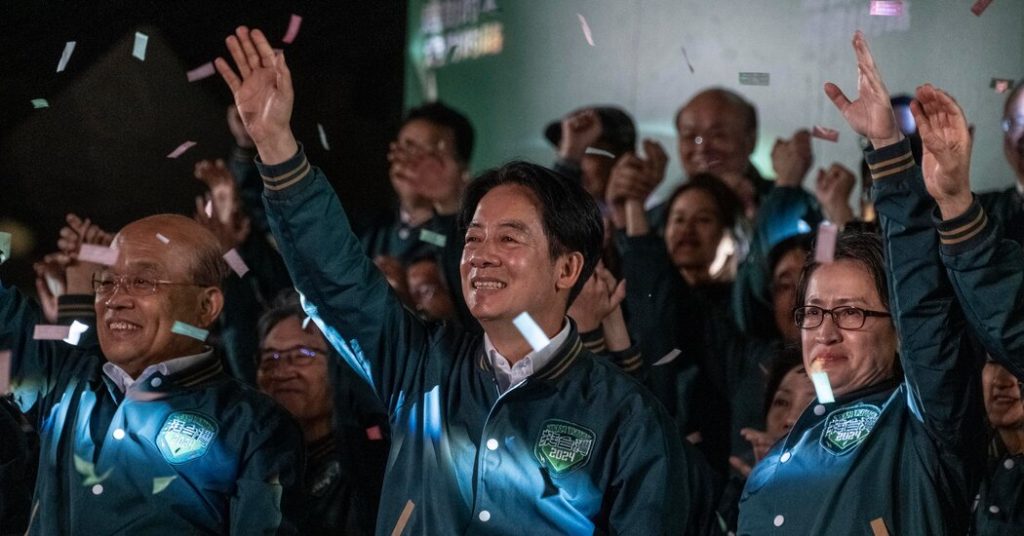Taiwan’s new president, Lai Ching-te, faces a challenging term ahead filled with tough decisions about the island’s future amidst rising tensions with China, conflicts abroad, and internal divisions. He is focused on strengthening ties with Western allies, resisting Beijing’s threats, and enhancing Taiwan’s defenses while possibly reaching out to China for renewed talks. However, he faces obstacles such as being less experienced in foreign policy negotiations compared to his predecessor, Tsai Ing-wen, and dealing with opposition parties in the legislature.
The international environment in which Lai assumes office is more complex than when Tsai became president in 2016. Wars in Ukraine and the Middle East, China’s aggressive policies, and uncertain U.S. foreign policy due to upcoming elections all contribute to a more challenging landscape for Taiwan. Beijing has already shown its distaste for Lai, and may increase pressure on Taiwan through military and trade tactics to weaken his presidency. Chinese officials will likely continue to test Lai’s resolve, especially in light of his previous remarks about Taiwanese independence.
Despite concerns about the U.S. focus on Ukraine and the Middle East, Taiwanese officials believe that American support for these regions does not threaten Taiwan’s own security. However, there is debate within Taiwan about whether the U.S. can assist in strengthening the island’s military capabilities while dealing with conflicts abroad. Taiwan has a significant backlog of orders for arms and equipment from the U.S., and additional funds recently approved by Congress are seen as helpful but not a complete solution. Lai’s opponents worry that Taiwan may be caught in a security dilemma, unable to engage with Beijing yet unprepared for a potential confrontation.
The importance of maintaining stability in relations with China cannot be understated, as Beijing may opt to use military, economic, and political pressure on Taiwan before considering any immediate conflict. Lai may attempt to ease tensions by offering reassurances in his speeches, emphasizing Taiwan’s commitment to its constitution which refers to the island as the Republic of China. However, some experts believe that significant improvements in relations with China may be difficult to achieve given Beijing’s focus on unification and Taiwan’s resistance to making concessions on this issue. The domestic political landscape in Taiwan, with raucous displays of division in the legislature, adds further challenges to Lai’s presidency.


